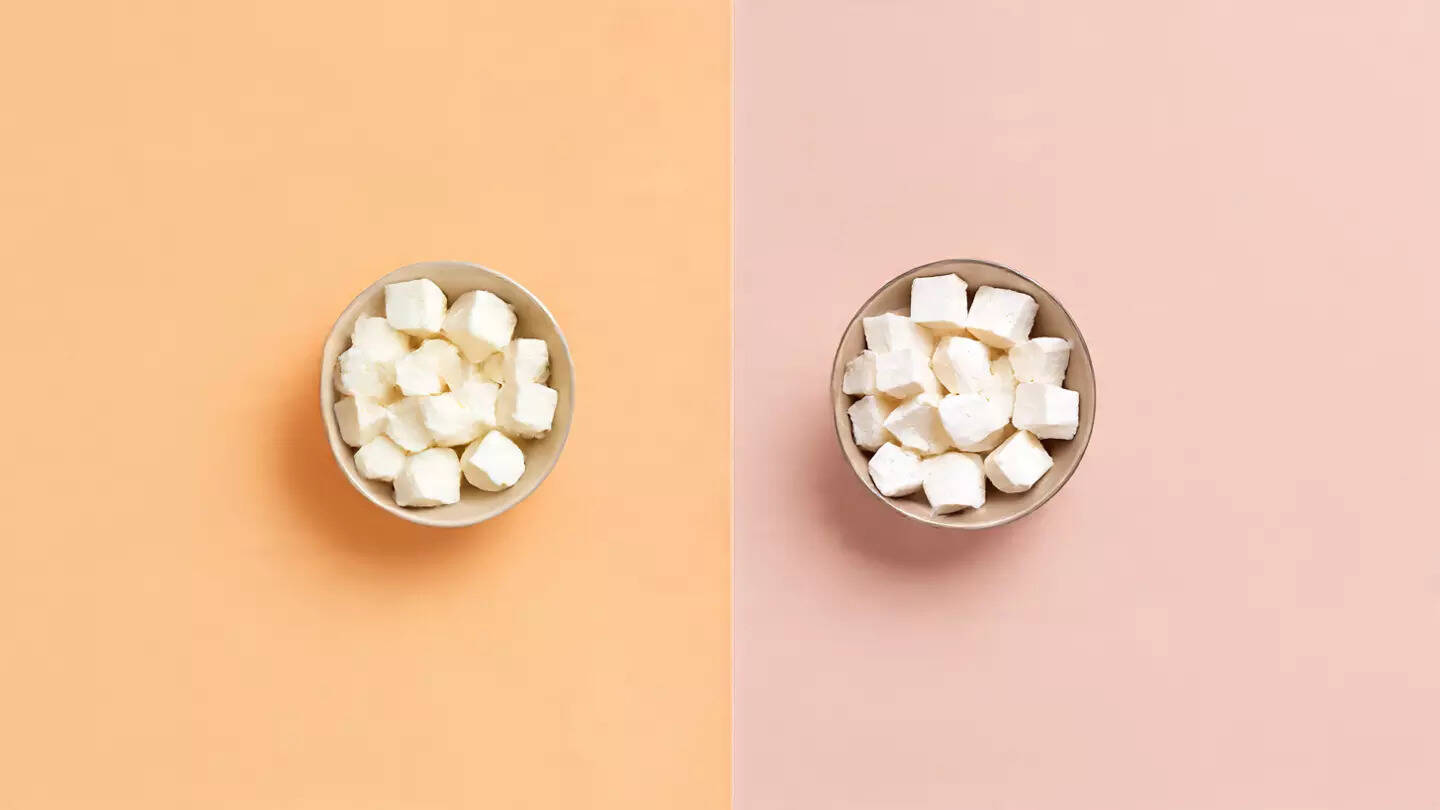How To Detect Adulterated Paneer At Home & Protect Your Health Naturally
Paneer, the beloved Indian cottage cheese, is a staple in countless dishes across households. From soft cubes in curries to grilled tikkas and stuffed parathas, it’s a versatile source of protein and flavour. However, in recent years, food adulteration has become a growing concern — and paneer is no exception. Adulterated paneer not only affects taste and texture but also poses serious health risks, including digestive issues, infections, and long-term complications. To protect your family’s health and ensure quality, it’s crucial to know how to identify fake or adulterated paneer using simple yet effective tests at home.
Check freshness: Fresh paneer should be white to off-white in colour, without any sliminess.
Read labels carefully: When purchasing packaged paneer, look for the FSSAI (Food Safety and Standards Authority of India) mark.
Store properly: Always refrigerate paneer and consume it within two to three days to avoid spoilage.
Consider making it at home: Homemade paneer is the safest and most nutritious option. All you need is fresh milk and a natural coagulant like lemon juice or vinegar — no preservatives, no adulterants.
Paneer is not just an ingredient — it’s a cultural and nutritional cornerstone in Indian kitchens. But as food adulteration becomes more common, staying vigilant is essential. By performing a few easy home tests and buying from reliable sources, you can protect your family’s health and enjoy authentic, high-quality paneer every time. After all, awareness is your first defence against adulteration, and good food begins with good choices.
Image Courtesy: Meta AI

Why Paneer Gets Adulterated
Paneer adulteration generally occurs due to unethical shortcuts taken by some manufacturers or vendors to increase profits. Genuine paneer is made from pure milk curdled with lemon juice, vinegar, or citric acid. But when milk prices rise or demand spikes, some sellers resort to using synthetic milk, starch, detergent, or urea to create paneer-like products that mimic the texture and appearance of the real thing. These chemical-laden substitutes may look convincing but can cause severe harm if consumed regularly.How to Identify Adulterated Paneer at Home
1. The Hot Water Test
One of the simplest and most effective ways to detect adulteration is the hot water test. Take a small cube of paneer and immerse it in a glass of hot water for about 10 minutes. If the paneer starts to dissolve, loses its firmness, or feels slippery, it’s likely made from synthetic milk or contains added starch. Pure paneer, on the other hand, will remain intact and soft without disintegrating.2. The Iodine Test for Starch
Another common adulterant found in paneer is starch, which is added to increase weight and yield. To check for this, take a small piece of paneer, mash it, and add a few drops of iodine solution (available at most chemists). If the mixture turns blue, it confirms the presence of starch. Pure paneer will show no colour change, indicating it’s free of such adulterants.3. The Smell and Taste Check
Trust your senses. Fresh paneer has a mild, pleasant, milky aroma. If it smells sour, chemical-like, or unusually strong, it’s best avoided. Similarly, the taste of adulterated paneer can feel chalky or soapy, unlike the clean, slightly tangy flavour of authentic paneer made from fresh milk.4. The Texture Test
Pure paneer is soft, smooth, and spongy to touch. If you notice it being too rubbery, excessively firm, or having a grainy texture, it might contain adulterants or be prepared with low-quality ingredients. Press a small piece between your fingers — real paneer will break softly, while fake or adulterated varieties may stretch unnaturally or crumble easily.5. The Lemon Test for Synthetic Milk
To test for synthetic milk in paneer, dissolve a small cube in warm water and add a few drops of lemon juice. If the liquid curdles immediately and releases an artificial or detergent-like smell, it’s a sign that synthetic milk or harmful chemicals were used in the preparation.Health Risks of Adulterated Paneer
Consuming adulterated paneer regularly can have serious consequences. Chemicals like detergent, urea, and synthetic milk compounds can damage the liver and kidneys, cause gastrointestinal distress, and weaken the immune system. Starch-based adulterants may spike blood sugar levels, posing a risk to people with diabetes. Long-term exposure can also lead to chronic digestive problems and nutrient deficiencies, as the body struggles to process artificial substances.Tips to Buy Pure and Safe Paneer
- Buy from trusted sources: Choose reputed dairy brands or local vendors known for quality.
Image Courtesy: Meta AI
Next Story